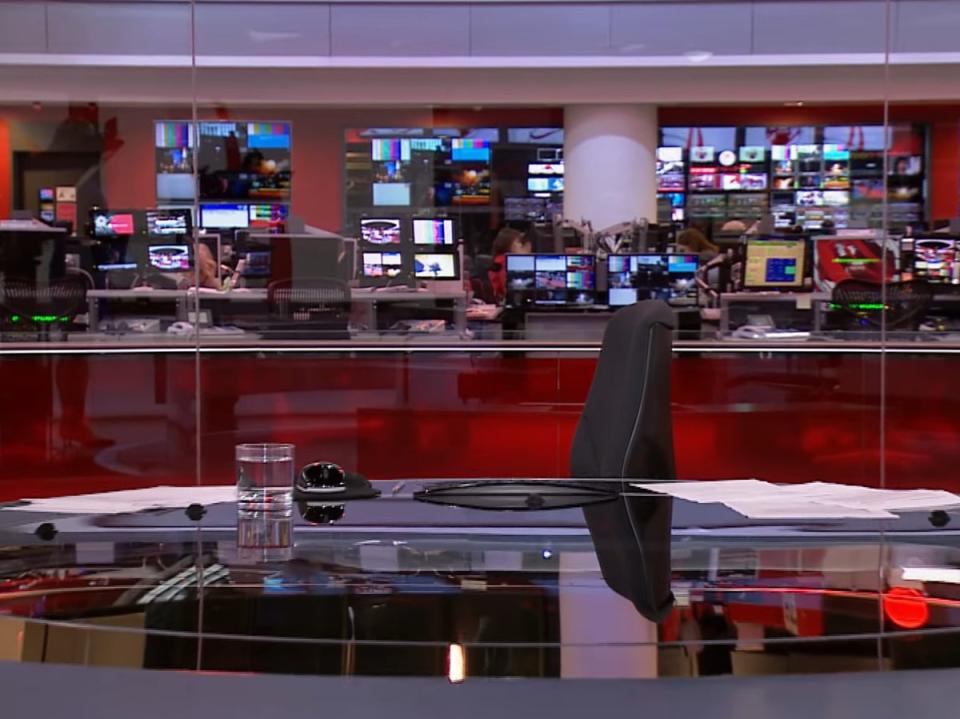BBC News to replace its ‘robot cameras’ following viral gaffes
BBC News is set to replace its TV cameras following a number of on-air mishaps.
The broadcaster currently uses automated “robot” cameras for much of its news coverage, which do not require human operators.
According to a report in the US outlet Deadline, the BBC is looking to acquire new cameras ahead of a “reboot” next year.
Back in July, the broadcaster confirmed it would be merging its British and international news channels into a single entity, as a cost-cutting measure.
The article cites BBC sources as saying that the existing cameras had started “showing their age”.
Amusing and widely shared clips from across the past decade have seen broadcasts cut to empty chairs during newscasts. Other clips show cameras shifting away from presenters unexpectedly, or zooming in and out.
The errors are the result of a disconnect between pre-programmed camera movements and the live action in the studio.
On social media, viewers have described the blunders as cameras “going rogue”.
“They are driven by automation codes,” a source told the publication. “If a human being fails to remove the wrong automation code or fails to insert the correct automation code in the running order then cameras will do the correct thing, which is actually the unintended thing.”

It was also stipulated that the high-profile errors constituted only a “tiny proportion” of the overall programming.
The cost of replacing the camera equipment has not been divulged.
In the past, the BBC has been content to embrace the lighter side of on-air gaffes.
Around the time of the broadcaster’s centenary earlier this year, it shared a video compilation of memorable BBC News blunders, titled “100 Seconds of BBC News Going Wrong”.

